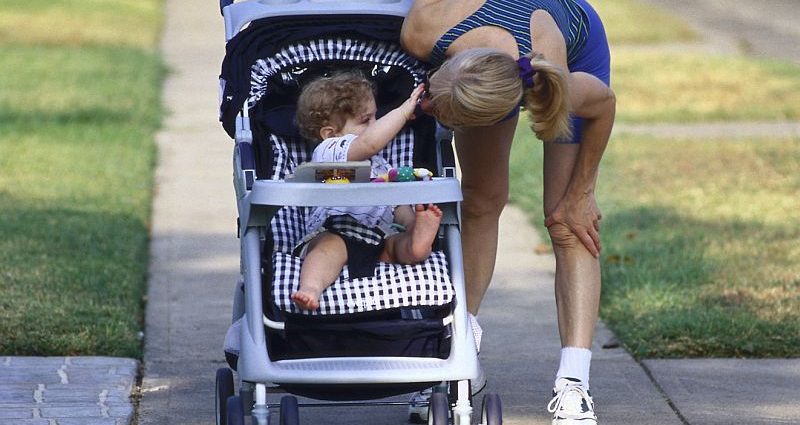MONDAY, May 15, 2023 (HealthDay News) – Baby equipment is costly, so many parents buy it used, but they’re not always sure whether it’s still safe, a nationwide poll reveals.
About half of the 932 parents surveyed in February said they had used pre-owned equipment for their baby, most often cribs and high chairs, according to a University of Michigan Health C.S. Mott Children’s Hospital poll released May 15.
Yet, 2 in 3 said it was hard to tell if the equipment was safe.
“Used child essentials are often more cost-effective, environmentally friendly and convenient,” said poll co-director Sarah Clark. “However, many parents in our poll weren’t completely confident they could identify safety concerns, such as unsafe wear and tear, recalls or hygiene issues.”
About half said they were only comfortable with used equipment from family or close friends. A little less than half were also OK with items bought at resale shops and yard sales.
Outdoor play structures, strollers, playpens and bath seats were among other items most often purchase.
Parents were least likely to report using secondhand infant car seats or booster seats.
“Regardless of whether they receive the item from someone they know well or from a garage sale, parents should take diligent steps to make sure the equipment meets current safety standards and is safe for their child,” Clark said in a university news release.
She noted that safety regulations are constantly evolving as research identifies features that pose a risk.
“This is particularly important when it comes to cribs, one of the most common types of pre-owned equipment,” Clark said. “It is likely that some parents using pre-owned cribs may not be aware of how safety standards have changed.”
While most respondents said they were very likely to look for signs of damage and to clean the equipment, half were as likely to search the internet for set-up and use instructions or for product recalls.
“If parents don’t properly follow assembly instructions, cribs, strollers and play sets can collapse or malfunction, potentially causing serious injuries to the child,” Clark said.
Before letting a child use a pre-owned item, it’s important to check for product recalls, which mean a manufacturer has asked customers to return or stop using the product due to a safety hazard, she added.
About 4% of parents said they were not comfortable using any pre-owned equipment. Three-quarters said they prefer to buy new.
But budget concerns can be a barrier. About 58% of those with household incomes under $100,000 said they were more likely to have used pre-owned equipment.
Most parents said they had donated or sold child health and safety equipment. About 74% said the equipment went to a family member or friend; 52% donated it to a charitable organization; and 35% sold it at a garage sale. About 19% said they had never shared or sold pre-owned equipment.
“Before passing on an item to another family, parents should ensure it’s safe and in good working order,” Clark said. “If not, parents should dispose of the equipment to avoid risking injury of another child.”
The nationwide poll of parents with at least one child 7 years or younger was conducted in February.
More information
Consumers Union has information on dangerous baby equipment to avoid.
SOURCE: Michigan Medicine, news release, May 15, 2023
Copyright © 2026 HealthDay. All rights reserved.

